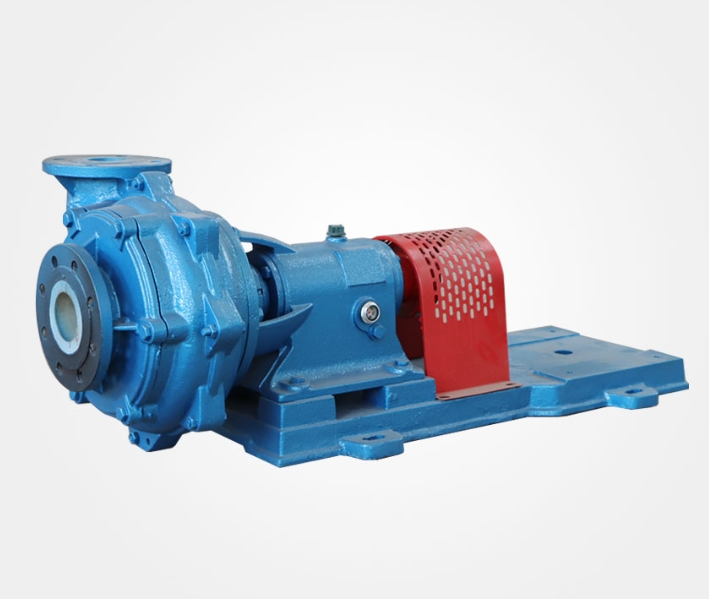Characteristics of Ceramic Pumps: A Reliable Solution for Industrial Applications
Characteristics of Ceramic Pumps: A Reliable Solution for Industrial Applications
Ceramic pumps are a specialized type of pump that is widely recognized for their durability and efficiency in handling a variety of challenging industrial applications. Made from advanced ceramic materials, these pumps are specifically designed to handle abrasive, corrosive, and high-temperature liquids that could otherwise damage conventional pumps. In industries like chemical processing, mining, food and beverage, and water treatment, ceramic pumps offer unique advantages that make them an essential choice in environments where other materials may fail. Here are some key characteristics of ceramic pumps:
1. Superior Wear Resistance
One of the most notable features of ceramic pumps is their exceptional wear resistance. The ceramic components used in these pumps, such as the pump housing, impellers, and shafts, are designed to withstand abrasion from hard particles and materials that would quickly degrade conventional pump parts. In industries where pumps handle slurries, minerals, or other abrasive liquids, ceramic pumps can significantly reduce maintenance costs and downtime by lasting longer without the need for frequent replacements.
2. Corrosion Resistance
Ceramic materials are naturally resistant to a wide range of chemicals and corrosive substances. In industries that involve the handling of aggressive fluids such as acids, alkalis, or other corrosive chemicals, ceramic pumps provide an ideal solution by preventing the degradation of the pump components. This corrosion resistance is particularly beneficial in industries like chemical manufacturing, wastewater treatment, and even the food industry, where maintaining hygiene and safety standards is critical.
3. High-Temperature Tolerance
Another key characteristic of ceramic pumps is their ability to operate in high-temperature environments. Ceramic materials have a higher melting point than many metals, allowing ceramic pumps to effectively handle hot liquids or slurries without the risk of deformation or failure. This makes them suitable for use in industries like thermal power generation, petrochemicals, and various manufacturing processes that involve high-temperature fluids.
4. Low Maintenance and Long Service Life
Due to their durability and resistance to wear and corrosion, ceramic pumps often require less maintenance than conventional pumps. The materials are less prone to damage, reducing the frequency of repairs and replacement parts. This leads to longer service lives for ceramic pumps and, ultimately, lower operating costs for industries that rely on pumps to keep their processes running smoothly. The reduced need for maintenance also translates into fewer production interruptions, improving overall system efficiency.
 5. High Efficiency
5. High Efficiency
Ceramic pumps are known for their high efficiency, as they have low friction and resistance compared to traditional metal pumps. The smooth surfaces of ceramic materials minimize energy losses due to friction, allowing the pump to operate with greater energy efficiency. This can lead to reduced energy consumption, lower operating costs, and a more sustainable operation, especially in industries where large volumes of fluid are processed.
6. Versatility in Fluid Handling
Ceramic pumps can handle a wide range of fluids, including not only abrasive and corrosive liquids but also high-viscosity fluids. The ability to handle a diverse array of materials makes them versatile for many industrial applications. From handling chemicals in the pharmaceutical industry to pumping slurries in mining or transporting food-grade liquids in the beverage industry, ceramic pumps offer flexibility and reliability across sectors.
7. Noise and Vibration Reduction
Ceramic pumps tend to operate more quietly and with less vibration than their metal counterparts. This is especially important in environments where noise control is essential, such as in food processing facilities, hospitals, or pharmaceutical plants. The smooth operation of ceramic pumps contributes to a safer and more comfortable working environment.
Conclusion
Ceramic pumps are a robust and efficient solution for industries that require the handling of abrasive, corrosive, or high-temperature fluids. Their exceptional wear and corrosion resistance, high-temperature tolerance, low maintenance needs, and energy efficiency make them an excellent choice for applications where conventional pumps might struggle. By incorporating ceramic pumps into their processes, industries can reduce downtime, improve safety, and lower long-term operating costs. As the demand for advanced material handling solutions continues to rise, ceramic pumps are poised to play an increasingly vital role in industrial fluid handling.




